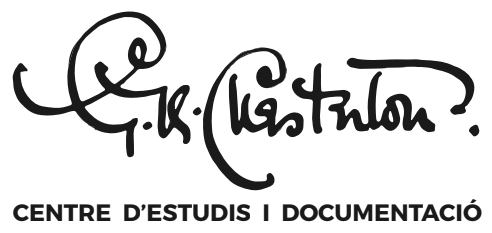Glossary
The glossary includes essential terms related to the person, life, and work of Chesterton. For reasons of space it must inevitably be incomplete. It includes the most important people – family, friends, contemporaries and adversaries -, the most significant places – streets, neighborhoods, buildings, literary, cultural and religious associations – and the most important public activities – conferences, debates, meetings, congresses , election campaigns and travel.
There are currently 8 terms in this directory beginning with the letter W.
War Propaganda Bureau
In August 1914, soon after the outbreak of the First World War, David Lloyd George appointed the writer and Liberal MP Charles Masterman to organise the War Propaganda Bureau; on 2 September 1914 Masterman invited twenty-five prominent British authors to Wellington House, the Bureau’s headquarters, to discuss strategies to promote British interests during the war; among the guests, aside from G. K. Chesterton, were Arthur Conan Doyle, Arnold Bennett, William Archer, John Galsworthy, Thomas Hardy, Rudyard Kipling and H. G. Wells.
Ward, Maisie (1889-1975)
Writer and orator; descendant of a distinguished British Catholic family; cofounder of the publishing house Sheed and Ward; a personal friend of Gilbert, she published, to Frances’s request, the best-selling authorized biography Gilbert Keith Chesterton (1943); she also published Return to Chesterton (1952).
Waterworks Tower
Water tower located in front of St George’s Church in Campden Hill (Kensington, London); the building features prominently in Chesterton’s first novel The Napoleon of Notting Hill (1904).
Wells, Herbert George (1866-1946)
English writer; prolific in many genres, he wrote novels, short stories and other social commentary, historical, satirical, biographical and autobiographical works; he’s remembered for his science fiction novels; he was a friend of Chesterton’s; the content of his book A Short History of the World (1922) was refuted by Chesterton in The Everlasting Man (1925), in which he rejected Wells’ views of civilisation as a perfect development of animal life, and of Jesus Christ as a charismatic figure.
Westminster Cathedral
Catholic cathedral located on Victoria Street (Westminster, London); G. K. Chesterton’s funeral was held there on 27 June 1936; Ronald Knox read a panegyrical.
White Hart, The
Inn in Beaconsfield (Buckinghamshire); located on the town’s main crossroads, where Gilbert and Frances arrived after reaching Beaconsfield for the first time, walking from Slough, a neighbouring village.
Whitman, Walt
American poet, essayist and journalist; a humanist, he took part in the transition from transcendentalism to realism, incorporating both views into his work; he deeply influenced Chesterton, especially in the period 1893-1895.
Women’s suffrage
International reformist movement led by the suffragettes, who demanded their right to vote; born in the late 19th century and rooted in the United States and Britain, it sowed the seeds for the future modern feminist movement; the suffragette movement, beyond demanding votes for women, was a result of the struggle of women for more rights, more participation and more prominence in the fledgling Industrial era.
